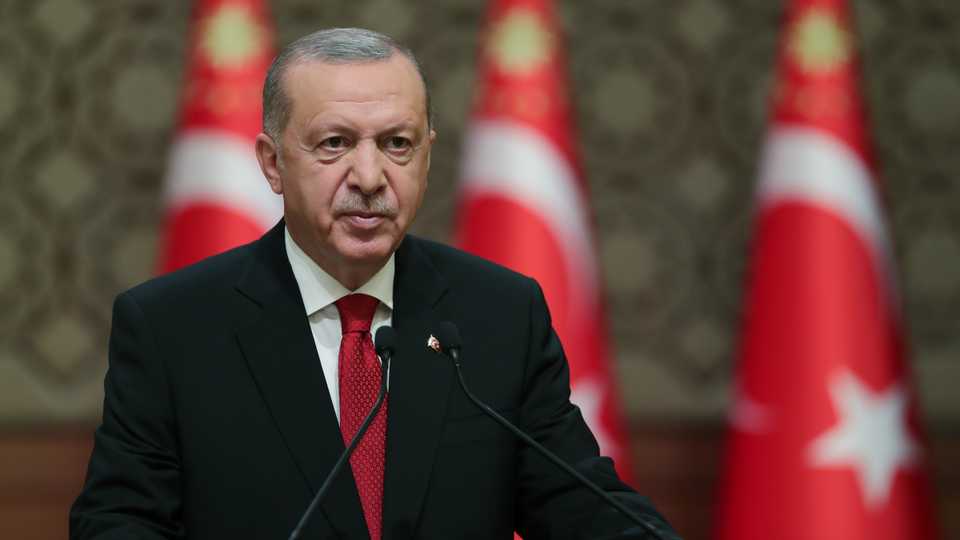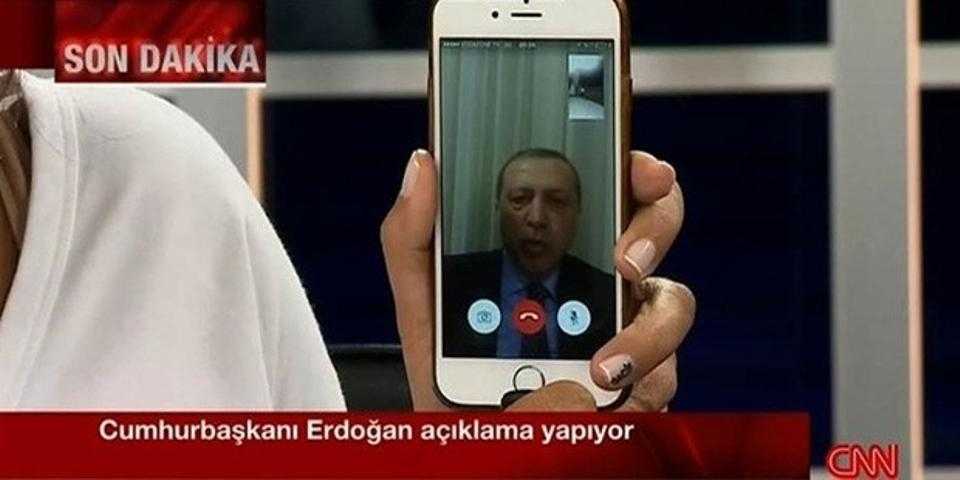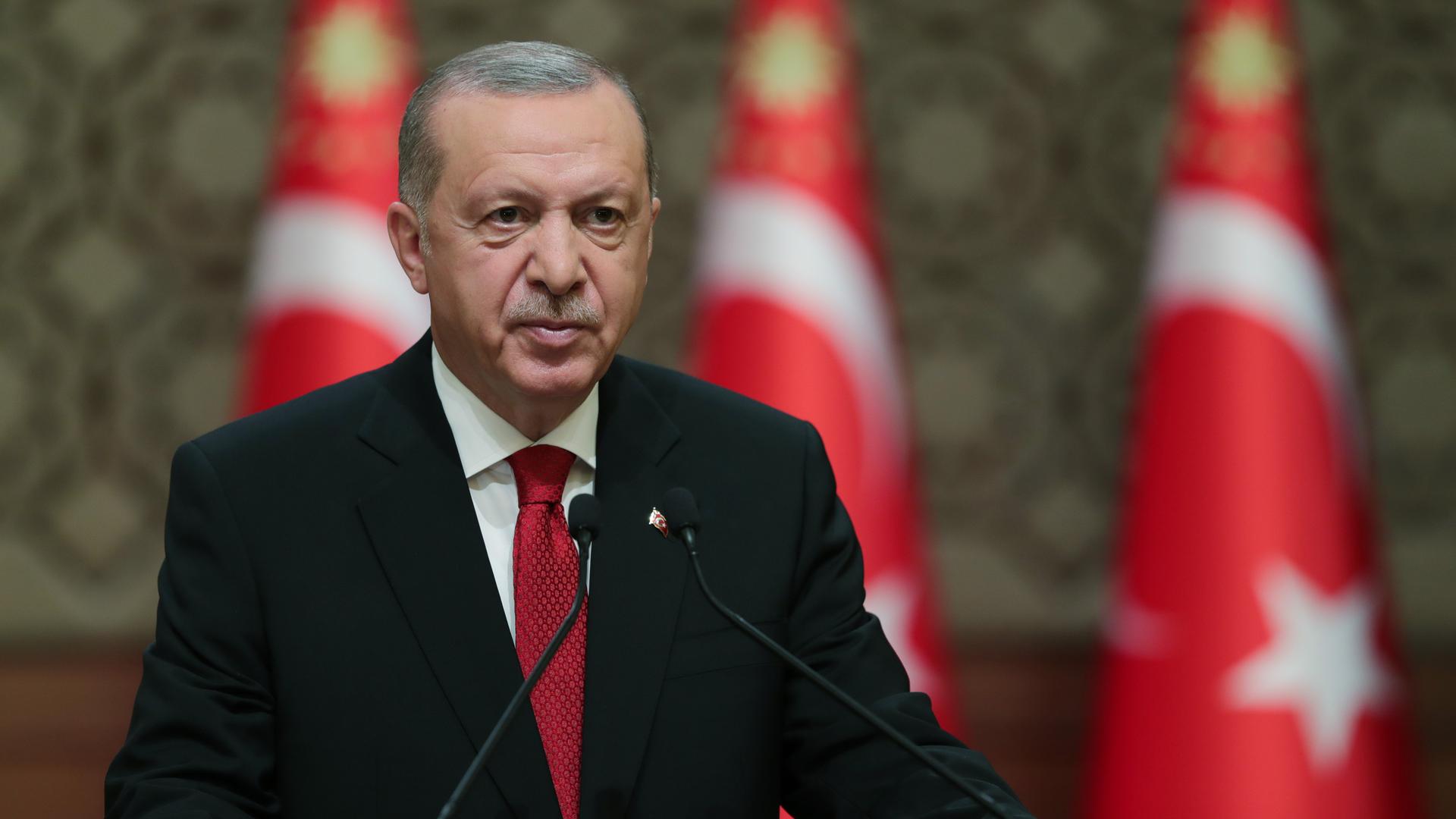
Turkey is marking the fourth anniversary of the July 15 failed coup attempt against the government, with ceremonies and events remembering its victims.
Turkey’s President Recep Tayyip Erdogan on Wednesday, accompanied by civilian “veterans” who fought against the coup, laid a wreath at a memorial in the presidential complex in Ankara and prayed.
“July 15 was not an ordinary coup, it was a historic breaking point,” Erdogan said at the event.
Erdogan was kicking off a series of events to commemorate the crushing of the coup, including at parliament. Attendees were wearing masks as the event took place amid the Covid-19 pandemic.
“Coup plotters knew what they were attempting. On the night of July 15, tanks and armoured vehicles were seen on the streets of Ankara and Istanbul, they were crushing people in their way,” he said.
Millions of heroes emerged that night, Erdogan added, they changed the future of the nation.
Turkey’s parliament also held an event remember the victims of the deadly putsch orchestrated by Fetullah Terrorist Organization (FETO) that claimed more than 250 lives.
The commemorative ceremony launched with Parliament Speaker Mustafa Sentop’s visit to the July 15 Democracy Martyrdom Monument at 0700 GMT in Ankara.
Later in the night, honouring the thousands of members of the public who took to the streets four years ago against the coup bid, athletes from all 81 of Turkey’s provinces will keep a “Democracy Watch” in front of the July 15 Monument at parliament.
READ MORE: What if the July 15 coup attempt had succeeded?

A coup upended by the people
For the first time in Turkey’s 94-year history, a military coup failed.
A rogue military faction, loyal to Gulen, aimed to take over key infrastructure as well as governmental, military, and media institutions, on the night of July 15. Targets included TRT’s offices in both Istanbul and Ankara.
Fighter jets under control of coup plotters bombed parliament in the early hours of July 16.
The effort soon fell apart as the remaining army and the Turkish public fought back and resisted.
A total of 251 people were killed and around 2,200 others were wounded as the coup plotters fired on people or bombed parliament and other government buildings. Around 35 alleged coup plotters were also killed.
Since that night, Turkey has marked June 15 as Democracy and National Unity Day.
A number of structures and public spaces were renamed in the immediate aftermath, most notably Istanbul’s iconic Bosphorus Bridge becoming the July 15 Martyrs’ Bridge.
Invincible heroes
Later on Wednesday, Erdogan in his address to the nation said the public opposition to the coup bid proved that “each and every individual of our nation has proven that they can become an unbeatable hero for their Adhan [Muslim call to prayer], flag, freedom, and future when need be.”
Erdogan said the nation frustrated those who wanted to “put the national will under their feet.”
“It is not over yet, this nation has many words to say, many projects to implement. This state has a lot of potential to motivate.”
Turkey presses for Gulen extradition
The government declared a state of emergency after the coup attempt to crack down on the FETO terror group’s network.
Under emergency powers that were in place for two years, tens of thousands of people were arrested over links to the coup and to FETO and the trials continue.
More than 130,000 people were fired from public service through emergency decrees, among them teachers and police officers.
The Turkish government has requested the extradition of the US-based Gulen from the state of Pennsylvania where he has lived in self-imposed exile for almost 20 years.
Washington insists that it needs evidence to extradite Gulen, suggesting that he may not have been directly involved in the coup.
But Ankara says it has provided enough evidence of his involvement.
Even though the process is lengthy and complex, Ankara is determined to have the US extradite Turkey’s most wanted man.










Discussion about this post